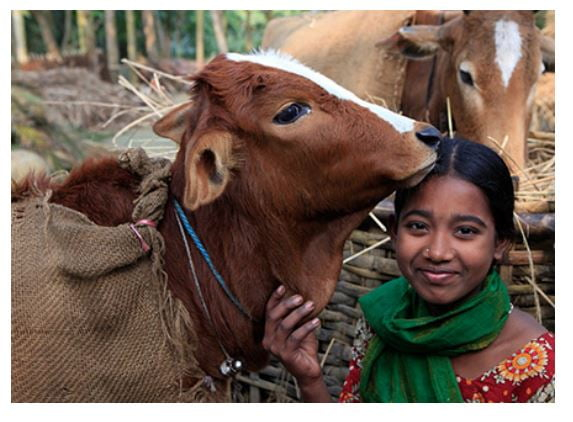AgTech
S.Korea sends dairy cows, livestock genetic resources to Nepal
The Korean dairy milk industry, fifth globally in productivity, conducts its first overseas project
By Dec 07, 2022 (Gmt+09:00)
1
Min read
Most Read
LG Chem to sell water filter business to Glenwood PE for $692 million


KT&G eyes overseas M&A after rejecting activist fund's offer


Mirae Asset to be named Korea Post’s core real estate fund operator


StockX in merger talks with Naver’s online reseller Kream


Meritz backs half of ex-manager’s $210 mn hedge fund



The South Korean government is donating dairy cows and genetic resources for cattle to Nepal.
The Ministry of Agriculture, Food and Rural Affairs on Wednesday said it will send via air on Dec. 22 101 dairy cows as well as breeding bulls and cow semen for artificial insemination to Nepal jointly with the international development organization Heifer Korea.
This is the first time for Korea to send an aid package of dairy and breeding cows and live cattle overseas.
As of last year, the average dairy cow in Korea produced 10 tons and 423 kg of milk, making the country fifth worldwide in the category after Israel (12 tons and 512 kg), the US (11 tons and 119 kg), Canada (10 tons and 852 kg) and Spain (10 tons and 786 kg).
The ministry will give cows to small farming households in a pilot dairy farming village in Sindhuli District under a project promoted by the Nepalese government, and conduct training for each farm. It will also dispatch Korean experts to run follow-up steps and allow the management of specifications by a mobile app.
With per capita income of $1,223 last year, Nepal has 80% of its population residing in rural areas, with dairy farming serving as a key industry comprising 9% of GDP. The country has an estimated 7.5 million dairy cows but milk productivity is said to be declining.
Annual milk output per indigenous cow in Nepal is 880 kg and that of a hybrid breed 3,000 kg, far less than the figures of 9,000-10,000 kg in Korea.
The ministry from June last year launched export quarantine negotiations for this project and concluded them last month.
A ministry official said, "Korea, which rebuilt its dairy industry after the Korean War through the donation of dairy cows with help from Heifer International and the international community, is now providing its livestock resources to Nepal, which needs help," adding, "This is an opportunity to stress our country's transformation from aid recipient to donor country."
Write to Jin-Won Kim at jin1@hankyung.com
More to Read
-
 Business & PoliticsTrump Jr. meets Korean business chiefs in back-to-back sessions
Business & PoliticsTrump Jr. meets Korean business chiefs in back-to-back sessionsApr 30, 2025 (Gmt+09:00)
-
 Korean chipmakersSamsung in talks to supply customized HBM4 to Nvidia, Broadcom, Google
Korean chipmakersSamsung in talks to supply customized HBM4 to Nvidia, Broadcom, GoogleApr 30, 2025 (Gmt+09:00)
-
 EnergyLS Cable breaks ground on $681 mn underwater cable plant in Chesapeake
EnergyLS Cable breaks ground on $681 mn underwater cable plant in ChesapeakeApr 29, 2025 (Gmt+09:00)
-
 Business & PoliticsUS tariffs add risk premium to dollar assets: Maurice Obstfeld
Business & PoliticsUS tariffs add risk premium to dollar assets: Maurice ObstfeldApr 29, 2025 (Gmt+09:00)
-

Comment 0
LOG IN


